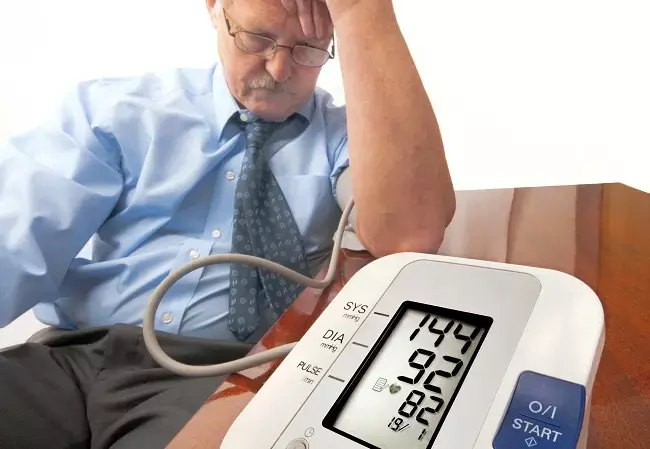- Home
- Medical news & Guidelines
- Anesthesiology
- Cardiology and CTVS
- Critical Care
- Dentistry
- Dermatology
- Diabetes and Endocrinology
- ENT
- Gastroenterology
- Medicine
- Nephrology
- Neurology
- Obstretics-Gynaecology
- Oncology
- Ophthalmology
- Orthopaedics
- Pediatrics-Neonatology
- Psychiatry
- Pulmonology
- Radiology
- Surgery
- Urology
- Laboratory Medicine
- Diet
- Nursing
- Paramedical
- Physiotherapy
- Health news
- Fact Check
- Bone Health Fact Check
- Brain Health Fact Check
- Cancer Related Fact Check
- Child Care Fact Check
- Dental and oral health fact check
- Diabetes and metabolic health fact check
- Diet and Nutrition Fact Check
- Eye and ENT Care Fact Check
- Fitness fact check
- Gut health fact check
- Heart health fact check
- Kidney health fact check
- Medical education fact check
- Men's health fact check
- Respiratory fact check
- Skin and hair care fact check
- Vaccine and Immunization fact check
- Women's health fact check
- AYUSH
- State News
- Andaman and Nicobar Islands
- Andhra Pradesh
- Arunachal Pradesh
- Assam
- Bihar
- Chandigarh
- Chattisgarh
- Dadra and Nagar Haveli
- Daman and Diu
- Delhi
- Goa
- Gujarat
- Haryana
- Himachal Pradesh
- Jammu & Kashmir
- Jharkhand
- Karnataka
- Kerala
- Ladakh
- Lakshadweep
- Madhya Pradesh
- Maharashtra
- Manipur
- Meghalaya
- Mizoram
- Nagaland
- Odisha
- Puducherry
- Punjab
- Rajasthan
- Sikkim
- Tamil Nadu
- Telangana
- Tripura
- Uttar Pradesh
- Uttrakhand
- West Bengal
- Medical Education
- Industry
Hypertensive patients on thiazide may have higher risk of falls and syncope than non-users: Study

Hypertensive patients on thiazide may have a higher risk of falls and syncope than non-users suggests a study published in the Indian Journal of Medical Research.
Although thiazide diuretics are frequently used to treat hypertension, they may also raise the risk of syncope and falls. The purpose of this study was to look at the relationship between hypertension individuals’ use of thiazide diuretics and falls or syncope. This retrospective cohort study, conducted between March 2019 and March 2024, included 236 individuals with hypertension taking thiazides and 236 controls not taking thiazides. Data from electronic medical records were extracted, including demographic, clinical, laboratory, and outcome data. The main outcome was the occurrence of syncope episodes or falls. Logistic regression analyses examined associations between various factors and falls/syncope risk. Results: The study included 236 study participants taking thiazides (118 men, 118 women) and 236 controls not taking thiazides (118 men, 118 women). Study participants taking thiazides had a higher prevalence of hyponatremia (57 study participants, 24.1% vs. 31 study participants, 13.1%), hypokalaemia (52 study participants, 22% vs. 32 study participants, 13.6%), hypercalcemia (37 study participants, 15.7% vs. 17 study participants, 7.2%), metabolic alkalosis (89 study participants, 37.7% vs. 52 study participants, 22%), acute kidney injury (59 study participants, 25% vs. 30 study participants, 12.7%), and chronic kidney disease (89 study participants, 37.7% vs. 59 study participants, 25%) compared to controls (all P<0.05). The prevalence of falls/syncope events was significantly higher in the thiazide group (76 study participants, 32.2%) compared to the non-thiazide group (46 study participants, 19.5%), with a P value of 0.002. Multivariate analysis showed increased falls/syncope risk with age [adjusted odds ratio (AOR)=1.38], congestive heart failure (AOR=2.12), longer thiazide duration (AOR=1.21), hyponatremia (AOR=1.68), hypokalaemia (AOR=1.72), metabolic alkalosis (AOR=1.68), acute kidney injury (AOR=1.85), and decreased eGFR (AOR=1.22 per 10 ml/min/1.73m2 decrease). Thiazide diuretic use in hypertensive patients is related to syncope, potentially mediated by electrolyte disturbances and renal impairment. These results highlight the importance of careful monitoring and individualised treatment approaches when prescribing thiazide diuretics to hypertensive patients.
Reference:
Yogesh, M., Karangia, M., Nagda, J., Kankhara, F., Parmar, P. A., & Shah, N. (2025). Thiazide diuretics use and risk of falls and syncope among hypertensives: A retrospective cohort study. Department of Community Medicine, Shri M. P. Shah Government Medical College, Jamnagar, India.
Keywords:
Hypertensive, patients, thiazide, higher, risk, falls, syncope, non-user, study, Indian Journal of Medical Research, Electrolyte disturbances, falls, hypertension, renal impairment, syncope, thiazide diuretics, Yogesh, M., Karangia, M., Nagda, J., Kankhara, F., Parmar, P. A., & Shah, N, Thiazide
Dr. Shravani Dali has completed her BDS from Pravara institute of medical sciences, loni. Following which she extensively worked in the healthcare sector for 2+ years. She has been actively involved in writing blogs in field of health and wellness. Currently she is pursuing her Masters of public health-health administration from Tata institute of social sciences. She can be contacted at editorial@medicaldialogues.in.


